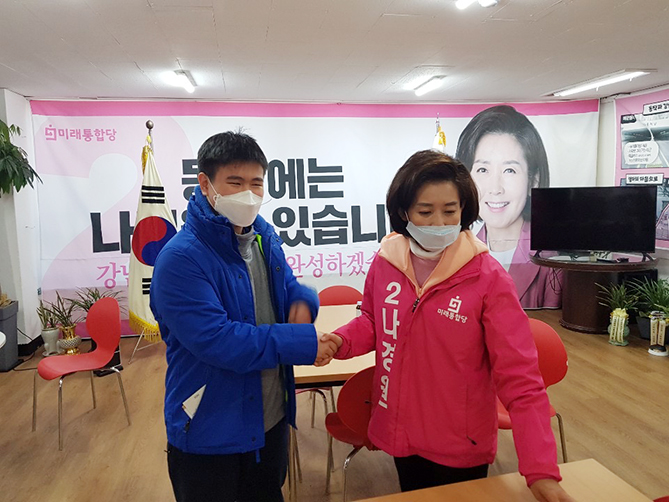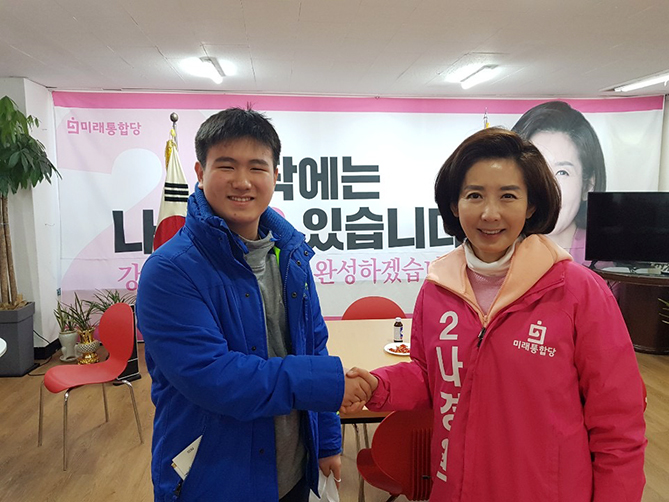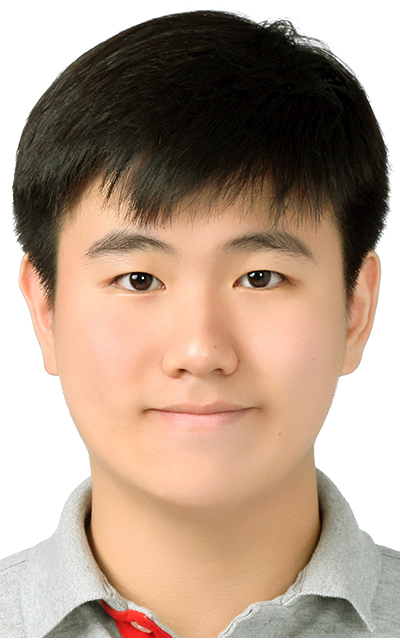“Virus has changed every aspect of the election. I have not shaken hands with anyone since the start of my campaign this year.” As the government encourages ‘social distancing’ to limit the spread of the virus, a less number of public speeches. The recent COVID-19 outbreak has not only slowed down the progress of delegates’ campaigns, but also taken away citizens’ desire to vote.
Not surprisingly, Na Kyung-won, a four-term lawmaker of the Opposition United Future Party (UFP)'s, is also dealing with this unprecedented campaign.
The candidate is bidding for Dongjak B, one of four constituencies in Seoul which has emerged as a hotly-contested district in the April 15 general election. With enthusiasm, Na spoke, "South Korea’s early recovery from COVID-19 and the government’s solutions to the economic crisis are pivotal. As a candidate of the opposition party, I want to tell constituents how to overcome this crisis and show them alternative solutions to the Moon government’s.” Then, she pointed out, “However, this is going to be tough due to social distancing led by COVID-19.”

I met her on March 22, Sunday morning at her campaign headquarter office in Dongjak district. While waiting near Na’s office, I only saw two people talking to the candidate. Wearing KF-94 masks, a number of pedestrians just walked past by her. With a disappointed face, Na mentioned, “An election campaign is a polar opposite of ‘social distancing.’ Proper ways of campaigning are shaking hands, discussing a variety of issues, and joining outdoor activities. Nevertheless, the government is recommending not to do these.”
The four-term legislator was also concerned about Korea’s low voter turnout. Last two parliamentary elections in 2012 and 2016 respectively held 54.2% and 58.0% turnout rates. However, this election’s voter turnout will likely be less than those of the last two. Na warned, “If the virus situation perpetuates, voters may not to cast ballots."

Recommended to stay indoors by the government, more citizens have started to rely on their phones and TVs more frequently for entertainment, news, and internet shopping as well. Therefore, Na is considering a new breakthrough, a Youtube campaign. “More than 50% of the people I meet have Youtube on their phones. I hope my channel could share insights of political information to them.” However, Na also expressed her concern and said, “Still, I am not sure if sharing my channel will be an effective way of communicating. As mentioned, it is best to meet face to face with citizens when running election campaigns.”
Korean political campaigns are usually boisterous affairs. Volunteers hold placards with the candidates’ faces. Mobile trucks drive around broadcasting campaign videos on big screens. Candidates appear at rallies with their own personal songs and cheerleaders. But this year, the campaigns will have to be toned down.
“Due to such an outbreak of the virus, it’s time to reconsider what would be a suitable way of campaigning.” Na suggested. “The method of communicating may be changed by using online or social media more than before, but we politicians need to get accustomed to this wind of change. Perhaps, 2020 will become the first year to have virtual politics.”

Jack (kangmin) Lee
9th grade
Seoul International School

